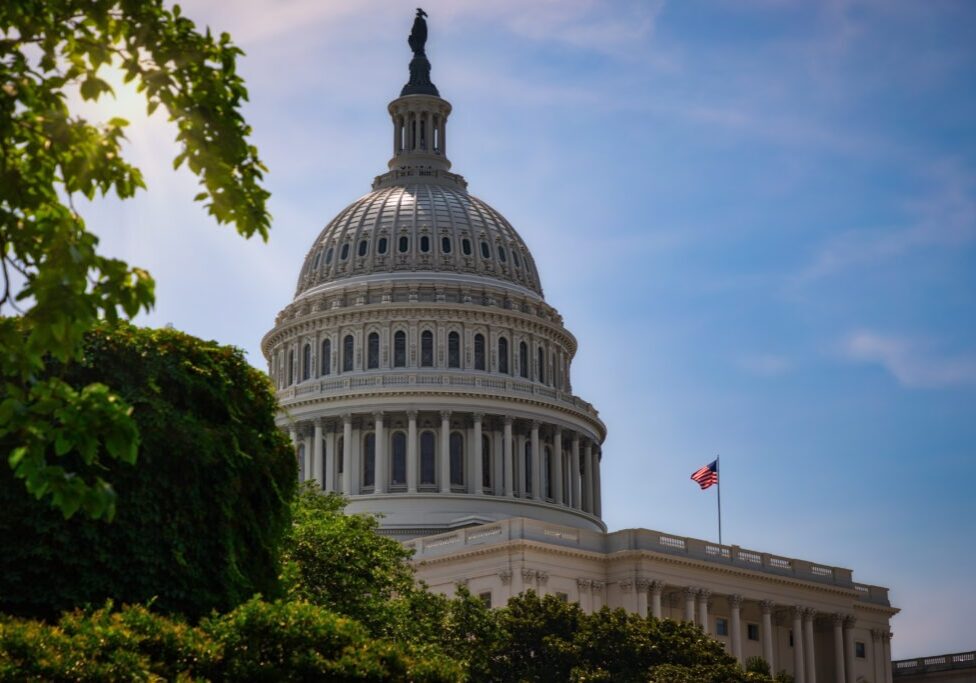Gov. Jeff Landry blamed the slow pace of infrastructure projects in Louisiana on federal red tape during a Congressional hearing on Wednesday. The governor was invited to testify before the U.S. House Committee on Transportation and Infrastructure by the panel’s chairman, Missouri Rep. Sam Graves. The Times Picayune | Baton Rouge Advocate’s Mark Ballard reports:
The layers of federal requirements have been added over time to ensure that state and local governments use the money properly. But Rep. Rick Larsen, D-Washington, said Congress hears constant complaints about states taking the federal money for a certain project, then using the dollars for other purposes. Landry said states should be given block grants — money that isn’t allotted for specific uses — and allowed to use them as necessary to complete infrastructure projects.
Louisiana First’s Shannon Heckt reports that Landry pushed for more federal funding for megaprojects:
Notably, the governor made a pitch to the U.S. House Transportation and Infrastructure Committee for more money towards key infrastructure projects such as the Calcasieu River Bridge in Lake Charles, a new Mississippi River Bridge in Baton Rouge and the I-49 corridor that has never been completed.
Reality check: The state legislature recently passed – and Landry signed – a law that temporarily diverts vehicle sales tax revenue from supporting megaprojects, such as the new Mississippi River bridge in Baton Rouge, to pay for costly tax cuts. A recent analysis found that the budget of Louisiana’s transportation department is inadequate to build megaprojects and address a $19 billion backlog of repairs.
Louisiana colleges spend minimally on DEI
Louisiana colleges and universities are spending little to no money on diversity, equity and inclusion (DEI) efforts, according to a new state legislative report obtained by the Louisiana Illuminator. Act 641 by Rep. Emily Chenevert requires post-secondary education institutions in the state to submit spending reports related to DEI. The data shows that half of schools spend no money on DEI, and those that do spend allocate less than 1% of their total budgets. The Illuminator’s Piper Hutchinson reports:
In total, 17 schools spend about $3.5 million on DEI measures out of $2.7 billion in state money appropriated to them in the most recent fiscal year, making up 0.1% of the state’s total higher education spending. The other 16 schools – including every campus in the historically Black Southern University system, most schools in the Louisiana Community and Technical College System and two schools in the LSU System – reported spending nothing on DEI.
Compensating locals for carbon capture risks
In recent years, state lawmakers have bulldozed through the wishes of local residents who have opposed the construction of controversial carbon capture projects in their communities. The Louisiana House Natural Resources and Environment Committee met on Tuesday to discuss ways to compensate local governments for the risks associated with these projects. The Times Picayune | Baton Rouge Advocate’s David J. Mitchell reports:
Calling such an injection fee “the right thing to do,” state Rep. Shane Mack, R-Livingston, said he expects to author a fee bill that would help local governments finance the additional services that sequestration may require. His district has grappled with a large sequestration project proposed under Lake Maurepas. “If we’re going to allow this to happen in their parish, then we need to compensate them such that it’s not a burden on the local governments,” he said after the hearing. As discussed for now, the fee would roughly mirror severance taxes that oil and gas operations pay to parishes for their extraction of minerals from underground
Don’t declare victory on teacher shortage just yet
Newly released data shows that Louisiana’s teacher shortage improved for the second straight year, as fewer teachers left the classroom and more prospective educators completed certification programs. But a Times Picayune | Baton Rouge Advocate editorial explains why state leaders shouldn’t declare victory just yet, as there are still issues that could drive teachers out of the classroom:
Louisiana’s teachers still have some of the lowest salaries in the country, making $5,000 less on average than their counterparts in other Southern states and almost $15,000 less than the national average, according to recent numbers from the Southern Regional Education Board. And distressingly, we continue to add peripheral issues to our educators’ plates, including laws around displaying the Ten Commandments in classrooms and how schools address gender and sexuality. Adding to that, the push to allow more public money to be funneled to private schools continues to undermine our public schools.
Number of the Day
200 – New Orleans ranking (out of 200) for best-performing big cities. Louisiana’s other big cities didn’t fare much better, with Baton Rouge, Shreveport and Lafayette ranking 152, 194 and 198, respectively. (Source: Milken Institute)
